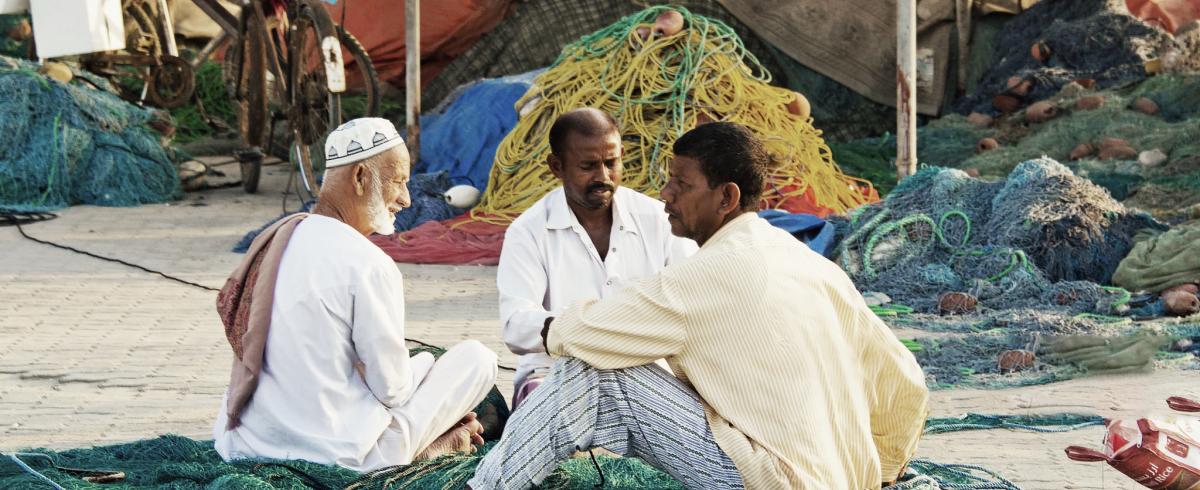
Categories to Explore
Welcome to the Resource Library. Here you will find a range of resources that you can use to support your small-scale fishery and community. Use the buttons above to browse resources by category or use the filters on the right to sort resources.
SDG Indicator 14.4.1 - Fish stocks sustainability
This course focuses on SDG Indicator 14.4.1 - Fish stocks sustainability: “Proportion of fish stocks within biologically sustainable levels”. It introduces basic fisheries concepts and definitions, illustrates some technical aspects of classical and data-limited stock assessment and provides detailed guidance on process and tools for the analysis and reporting of the Indicator.
Sustainable Food Value Chains for Nutrition
This course aims to equip project designers and managers with the concepts, principles and tools they need to leverage value chain approaches to improve nutrition through agriculture and food systems.
Climate-smart fisheries and aquaculture
This course has been designed to support the inclusion of climate-smart agriculture (CSA) approaches in the fisheries and aquaculture sector. It provides technical knowledge on these concepts and examines how implementation of CSA practices can enhance mitigation and adaptation to climate change in the sector.
SDG Indicator 14.b.1 - Securing sustainable small-scale fisheries
This course has been designed to support countries in their data collection, analysis and reporting of SDG Indicator 14.b.1 - Securing sustainable small-scale fisheries: "Progress by countries in the degree of application of a legal/regulatory/policy/institutional framework which recognizes and protects access rights for small-scale fisheries".
Climate change adaptation and mitigation in fisheries and aquaculture
This course provides an overview of adaptation and mitigation strategies that can be implemented in response to climate change impacts on the fisheries and aquaculture sector.
Food loss and waste in fish value chains
Food loss and waste (FLW) in the fisheries sector is a complex issue with multiple and interrelated causes at different levels. This e-learning course is for programme officers and technical specialists, as well as extension agents, who are involved in loss and waste prevention and reduction.
Fishers first: Good practices to end labour exploitation at sea
This report is to present, analyse and share good practices and innovative interventions from around the world aimed at eradicating forced labour and other forms of labour exploitation in the fishing industry.
Handbook for improving living conditions on board fishing vessels
This Handbook on improving living and working conditions on board fishing vessels has been developed to assist competent authorities, representative organizations of employers and workers (in particular, representative organizations of fishing vessel owners and fishers), as well as others with an interest in the sector, in order to gain a better understanding of the provisions of Convention No. 188 and Recommendation No. 199.
Ensuring decent work for fishers: ILO's Work in Fishing Convention, 2007 (N° 188)
This video includes background information the ILO's Work in Fishing Convention, 2007 (No. 188).
Mexican Baja California FEDECOOP Benthic Species Territorial Use Rights for Fishing System
The Baja California Regional Federation of Fishing Cooperative Societies (FEDECOOP) is a Territorial Use Rights for Fishing (TURF) program in Mexico. FEDECOOP consists of 13 fishing Cooperatives that collectively manage 10 TURFs to promote sustainable harvests, increase market access and power and provide stability to fishermen and fishing communities.
